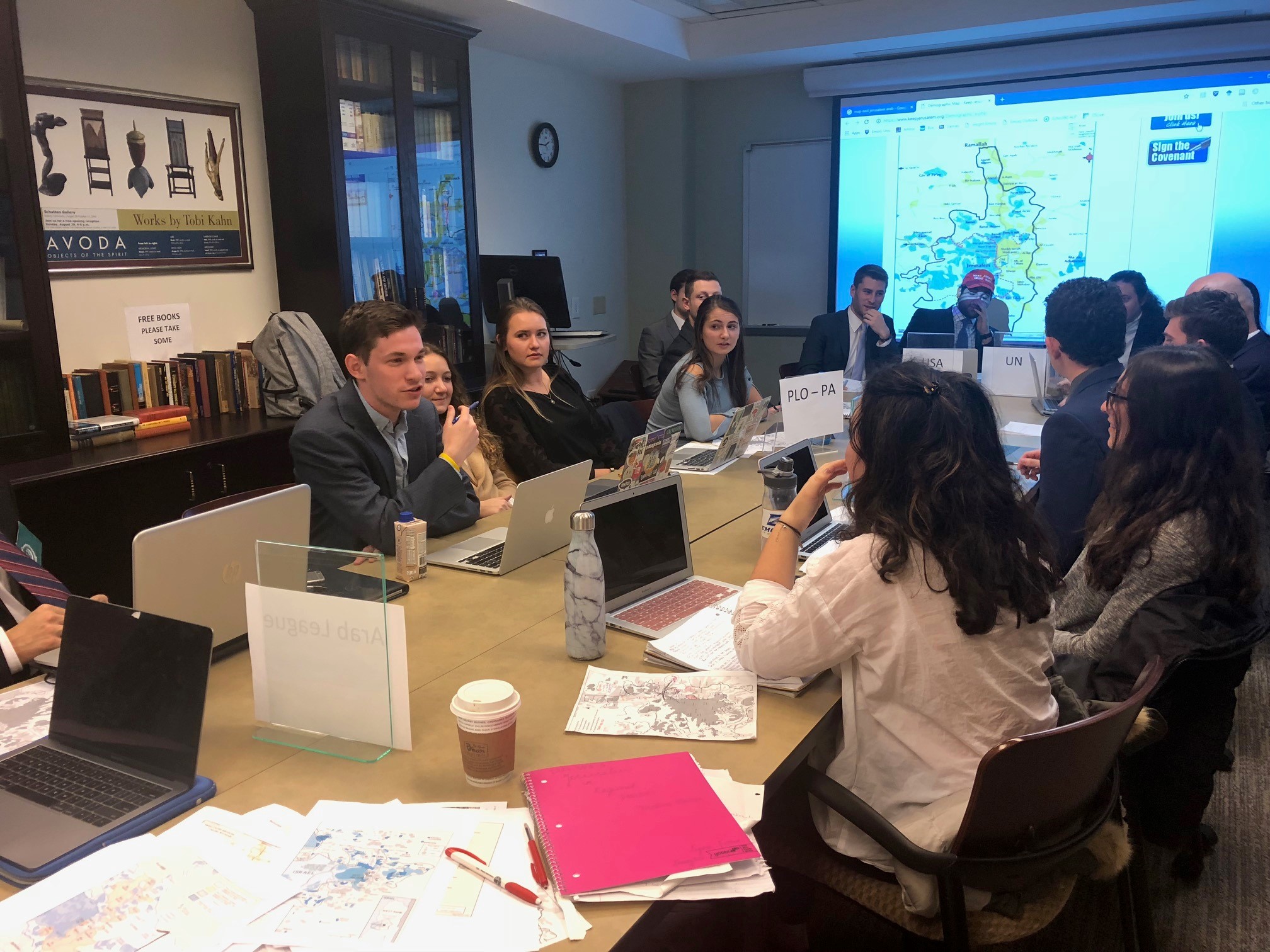Class negotiates the end to conflict in Jerusalem

On Thursday, December 6, Professor Yitzhak Reiter's class on "Jerusalem in Regional Politics" culminated with a class simulation of the Israel-Palestine conflict. The classroom was divided into five teams: the United States, the United Nations, the Palestinian Liberation Organization/Palestinian Authority (PLO-PA), the Israeli government, and the Arab League. Their goal: negotiate the future of Jerusalem.
Before negotiations began, Professor Reiter, a visiting professor from Ashkelon Academic College and brought to campus by the Institute for the Study of Modern Israel, encouraged the class to maintain a civilized discussion. However, he made allowances for passionate responses, as they too occur on the real-world negotiating stage.
According to Dr. Reiter, "The simulation was a training tool for engaging the students in 'real politics,' understanding the complexity of the Israeli-Palestinian conflict, and focusing on the special topic of Jerusalem as a city holy to the world’s three largest monotheistic religions and as a rallying point for opposing groups in the Middle East."
The students took the mock negotiations seriously and committed to their roles, but also brought a little levity to the proceedings. The "USA" welcomed the parties to the negotiating table, where a student playing President Trump promised that "big things" and "the deal of the century" would result from the mediation.
On the table were five major controversial issues concerning land and governance: Arab neighborhoods in East Jerusalem, the Old City and the Historic Basin, the Western Wall and the Temple Mount/Al-Haram Al-Sharif, the issue of divided or dual capitals/the border regime, and the municipal administration.
The first point of contention: the status of Arab neighborhoods in East Jerusalem. Both the Israeli and Palestinian sides were given the chance to state their ideal resolutions; here, student-diplomats supported their arguments with visual aids, consulted their notes, and conferred amongst themselves.
The students representing Israel's position argued for closed borders with security checkpoints; the students representing the PLO-PA argued for open borders, but were amenable to efficient checkpoints. Both teams disagreed with the UN's offer of security forces, and ultimately compromised on a closed border with security checkpoints and no UN presence. The students were well-prepared to support their respective arguments—Prof. Reiter interjected only once, to remind the teams that before they could truly discuss an open or closed border, they would need to first finalize where the border should be.
However, before the issue could be settled, one representative from each team broke off to conduct their own "back door" negotiations in the hallway.
The next point of contention dealt with the Temple Mount area. The Palestinians agreed to give Israelis a Jewish prayer area within the compound; however, the students representing the Arab League were vocal with their concerns regarding the area infringing on Muslim holy sites. After a compromise was struck, the group from the hallway returned from their "back door" discussions and pronounced that they had a finished deal.
For the next and final session, the moderating teams will present a blueprint for compromise, and further critical issues will be debated.
Dr. Reiter was satisfied with the outcome of the event: "The play manifested the barriers for achieving peace in the Middle East, but also the prospect for agreement when the parties negotiate in good faith. The Emory students succeeded in coming into agreement on most of the disputed issues, and even suggested creative ideas for how to solve them."